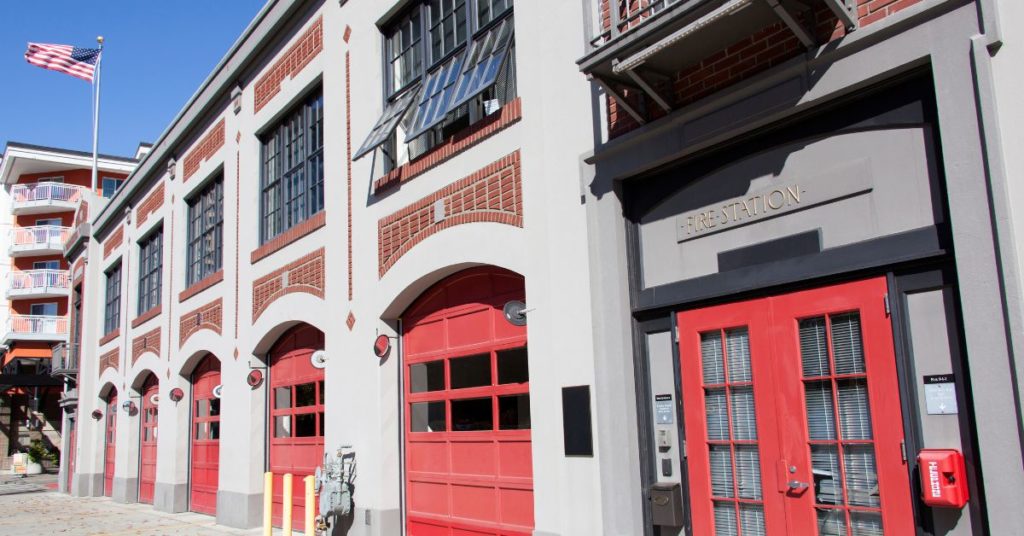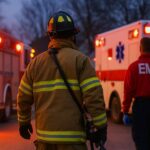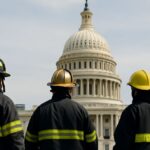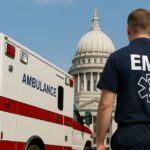There are always new bills coming and going in state legislatures. Many are proposed, not all are passed, but we are always pleased when we can report on legislation positively impacting the Fire & EMS communities. Below are three bills impacting firefighters passed in state legislatures over the last two years:
CS/HB 1209, Florida
This Florida bill is another wide-ranging piece of legislation which deals with several subjects related to the Department of Financial Services in that state. It was passed & signed into law in June of 2021 and became effective on July 1st of that same year.
Regarding the fire services industry, this bill extends cancer related benefits for firefighters and makes provisions for those classified as volunteer firefighters to be recognized as professionals under certain circumstances.
On a volunteer working as a regular firefighter:
“However, a person who is currently serving as a volunteer firefighter and holds a volunteer firefighter certificate of completion with a fire service provider, who is then employed as a regular or permanent firefighter by such fire service provider, may function, for a period of 1 year under the direct supervision of an individual holding a valid Firefighter Certificate of Compliance, in the same capacity in which he or she acted as a volunteer firefighter, provided that he or she has completed all training required by the volunteer organization.“
Lastly, the bill also makes falsely identifying as a firefighter and performing the services of a firefighter under false pretenses a third-degree felony.
HB 4171, Michigan
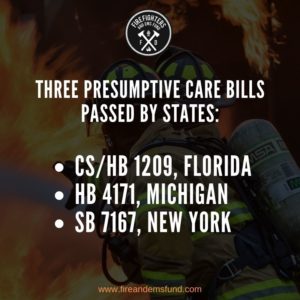
This legislation deals with worker’s compensation in Michigan, such as disabilities and occupational cancers, extending “presumption of causation” for fire/crash rescue & forest fire personnel. It was signed into law by the governor at the end of November 2021 and went into immediate effect.
The bill extends coverage to full-time paid members of local fire services, including county-operated airports, public airport authority, and state colleges & universities for “personal injury” including:
“…respiratory and heart diseases, or illnesses resulting therefrom, that develop or manifest themselves during a period while the member of the department is in the active service of the department and that result from the performance of duties for the department.”
Extended cancer coverage will be provided to members of fully paid fire department or fire authority, who have been active for at least 60 months prior to the manifestation of the illness and have been exposed to “hazards incidental to fire suppression.” Cancers covered include: “…any respiratory tract, bladder, skin, brain, kidney, blood, thyroid, testicular, prostate, or lymphatic cancer.”
SB 7167, New York
This bill provides presumptive heart disease coverage for any qualifying fire marshal, supervising fire marshal, division supervising fire marshal, assistant chief fire marshal, chief fire marshal or fire marshal trainee employed by Nassau County.
Coverage will be provided to:
“…who shall have sustained such disability while so employed, shall be presumptive evidence that such disability was incurred in the performance and discharge of duty and the natural and proximate result of an accident, unless the contrary be proved by competent evidence…”
This bill was passed by both chambers of the New York State Legislature and signed by the governor in December 2021.
Presumptive Cancer Coverage is a Top Priority
Getting presumptive coverage passed for our nation’s firefighters is a top priority. These brave Americans dedicate their lives to protecting our communities and evidence continues to mount that in doing so they are exposing themselves to highly dangerous long term medical situations. While we praise them for literally running into the fire, the downstream battles many will face later for their heroism often goes unnoticed. These three bills are indicative of the continued progress we are making as a nation in addressing the full spectrum of threats facing firefighters’ health and we will continue to work towards the goal of securing presumptive medical coverage for firefighters at every level.

